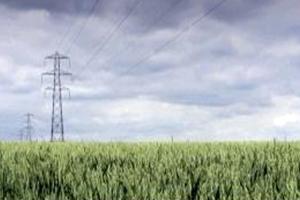Energy efficiency remains a promising but elusive means for combining local economic benefits with greenhouse gas reductions. It is a keystone of plans to limit global temperature rise to 2 degrees, but many apparently profitable opportunities for energy efficiency remain ungrasped, due to market and policy barriers. This session presents lessons on how to overcome those barriers, based on independent evaluation of the experience of the Global Environment Facility (GEF) Evaluation Office and of the International Finance Institutions (IFIs). Presented by the GEF Evaluation Office in association with the Evaluation Cooperation Group, the session will include commentary by Thomas C. Heller, Executive Director of the Climate Policy Initiative.
(Image Credits: Wheat Field and Pyleton by Simon Howden from Free Digital Photos)
Themes and speakers
- Moderator: Rob D. van den Berg
- Overcoming Barriers to Energy Efficiency: New Evidence from Independent Evaluation
Rob D. van den Berg, Director, GEF Evaluation Office - Leverage and Transformation in Financing Green Growth
Kenneth M. Chomitz, Sr. Advisor, Independent Evaluation Group (IEG) of the World Bank Group - Balancing Energy Supply-Side Expansion and Energy Efficiency Improvements in Asia
Kapil Thukral, Sr. Evaluation Specialist, Independent Evaluation Department, Asian Development Bank - Energy Efficiency in the Context of Climate Finance and Policy
Thomas C. Heller, Executive Director of the Climate Policy Initiative - Interaction with the audience will include questions from the Climate-Eval community of practice through Andrew Zubiri, moderator of Climate-Eval
Background
Lessons have been drawn from independent evaluations on what may be done to improve the efforts of the global community, and especially the efforts of the International Financial Institutions on supporting energy efficiency which brings reduced green house emissions.
The international discourse concerning climate change is increasingly placed in a perspective of moving toward a "green" economy. Energy efficiency features prominently in these discussions since it appears to be a win-win option that would allow for "green" economic growth. The International Financial Institutions (IFIs) have a long history of supporting countries to tackle energy efficiency and could play an important role in implementing this agenda. This session aims to present the evaluative evidence emerging from this rich history as well as possible steps forward.
There seems to be a consensus that the elements for a strong contribution of energy efficiency to a greener economy are in principle available, but that political will, and market and technological barriers prevent a fundamental and global shift. This session will also look at the support through loans and grants that the IFIs have provided on energy issues, specifically related to GHG emission reductions. It thus focuses on one major element of what would constitute a greener economy.
After presentations of specific evaluative evidence from the World Bank Group and the Asian Development Bank, Thomas Heller will provide a broader climate change finance perspective on energy efficiency.
Thomas Heller will provide a policy perspective on these findings, after which a panel discussion will take place which will include short presentations of specific evaluative evidence from the World Bank Group and the Asian Development Bank.
The Community of Practice on evaluating climate change and development will broadcast the event through the internet to its network of experts and provide opportunities for interacting.
